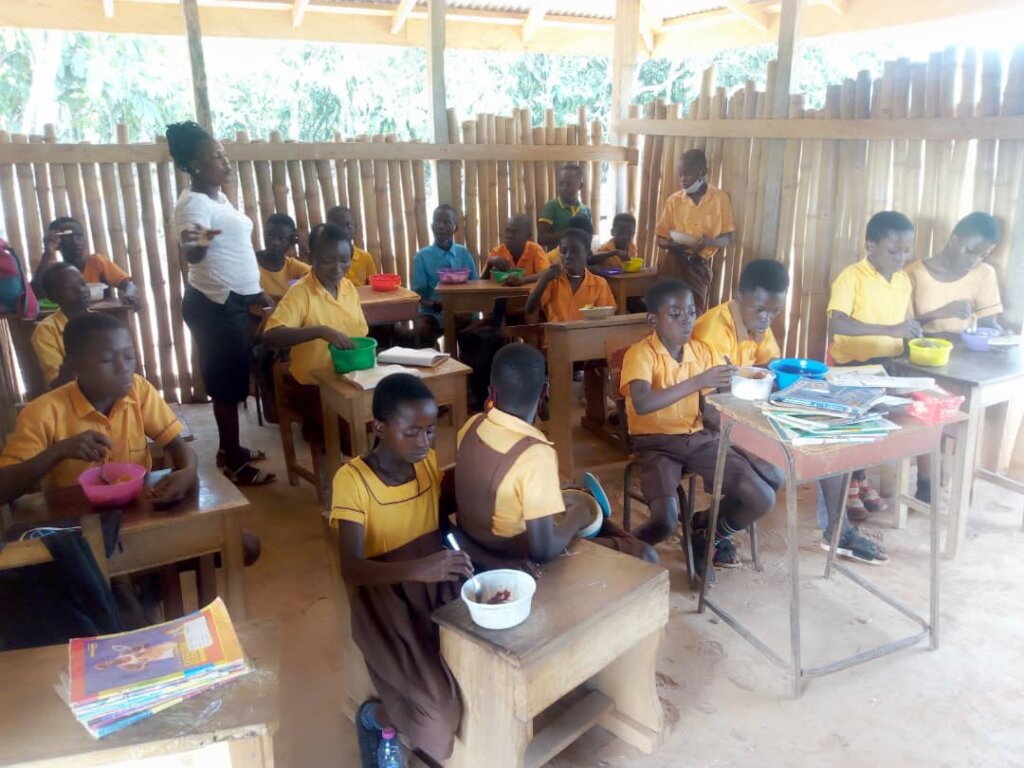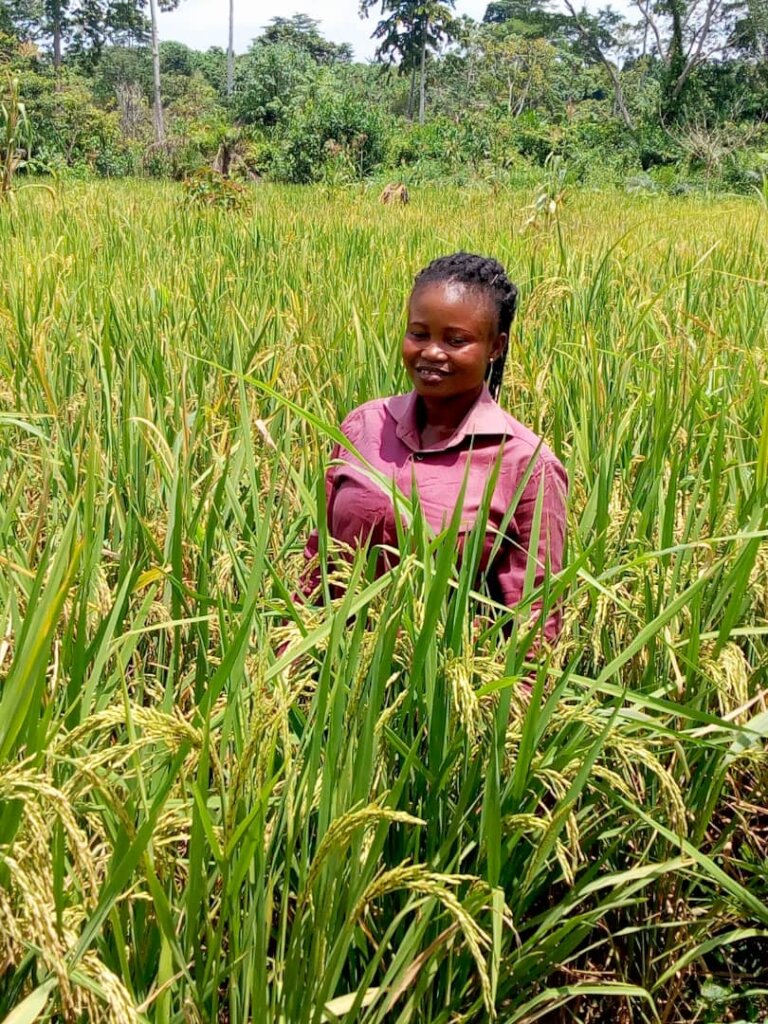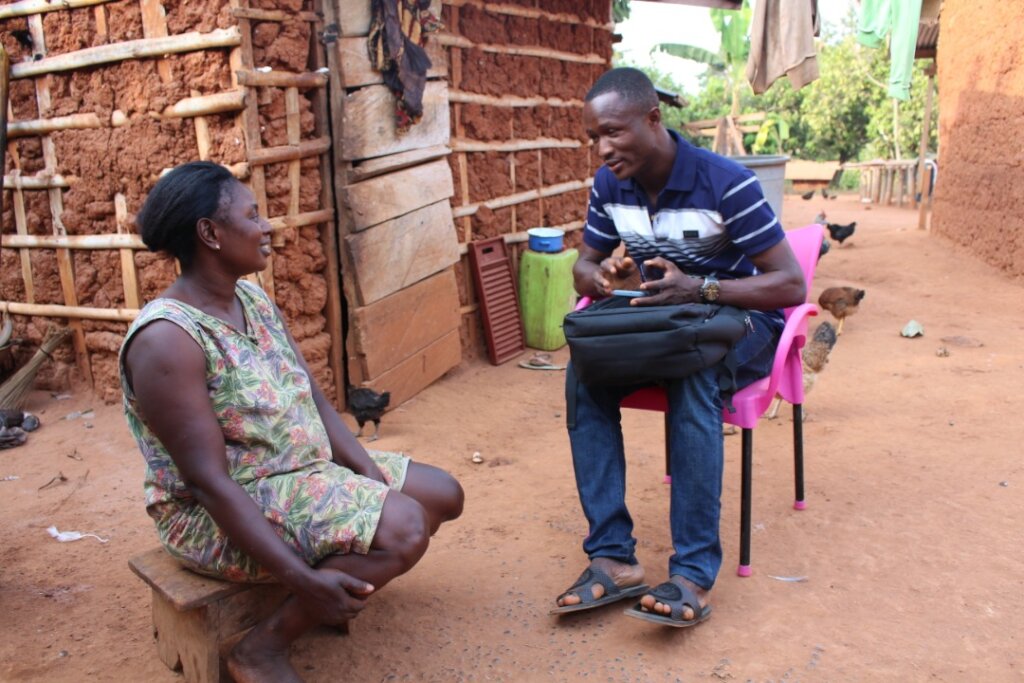![Charles and his mum]()
Charles and his mum
Hello,
This is Yuki Akahori, Project Manager for our SMILE community projects in Ghana. For this quarterly update, I wanted to share the stories of two children and their families, who we interviewed remotely a few weeks ago as part of our ongoing check-ins with SMILE community members. Here is what they had to say about their current situation, the SMILE-Ghana project and how it has impacted their lives.
-----------------------------------------------------------------------------------------------------------------------------------------------------------
Alice* and her family
Alice is part of a family of 8 who had migrated from the north-east of Ghana where they previously worked in rice farming. Their friends had told them that cacao-farming was more profitable, and so they decided to move down to the south west cacao-growing regions of Ghana. All of Alice's sisters and brothers are primary school-aged.
The hardest aspect of the COVID-19 pandemic for her parents was their business collapsing. They used to sell goods in the local market - which was shut down due COVID restrictions. They had already invested all their capital into building that business so they no longer have the resources to start up all over again.
Alice is 13 and likes going to school because she has good teachers and she likes learning. Her favourite subject is maths. During the school closures, she spent her days helping with household chores. She couldn't study because no one at home was able to teach her. That was the hardest part of the COVID-19 pandemic for her. She was so happy when schools re-opened.
Alice and all her brothers and sisters were already attending school before SMILE began in their community. The project reinforced their belief in the importance of education, which is their third biggest living expense after food and medical expenses.
SMILE-Ghana’s Impact
For the parents
Alice's parents didn't really understand what child labour signified until the project started in their communities. That is not to say that they didn't send their children to school, however, the project raised their awareness of the different types of harmful labour for different age groups and ensured their children were not engaged in anything they shouldn't be. The CCPC monitors their village now too.
What do you expect from the children's education?
For them to be empowered and supported and secure a better job in their future (better than the labour intensive work of cacao-farming).
What was the most significant change in your life which has resulted from SMILE Ghana Project and why?
One of the children was provided SMILE school supplies and it motivated me to try and make sure the other children all had supplies too. We saw how happy the children were to have supplies - this was our main motivating factor. Other changes we saw in the community were teachers being more punctual, academic performance increased as attendance increased and learning was being taken more seriously (teachers were punctual for example).
These were key changes for us because we want our children to have bright futures, and we believe these changes contribute to that.
For the children
What is the most significant change in your life that has resulted from SMILE Ghana Project? Why is this significant to you?
The school feeding program. Before that there was no food in school. We enjoy the meals.
What is your dream for the future? Why?
I want to be a nurse when I am old. I remember when I had gone to hospital for a stomach ache and a nurse treated me so well.
Charles and his family
Charles is one of a family of nine - he has 6 brothers and sisters. His parents have no other income source other than from cacao farming since they could no longer sell cassava and coco yam at the market since the pandemic hit. Their children’s education accounts for 40% of their living expenses. They want their children to be able to learn in a safe learning environment at school and secure opportunities for a better future.
SMILE-Ghana’s Impact
For the parents
Do you see any changes in your child’s behaviour or attitude in daily life (now & before the project)?
The children go to school much more and their academic performance has improved. Both us and the children have got better at making sure that we have everything ready for school.
From your point of view, what is the most significant change in your life that has resulted from the SMILE Ghana Project? Why is this significant to you?
We better understand the importance of children going to school and what children should and shouldn't be allowed to do. We have also come to feel that we have the ability to improve our children's opportunities.
From your point of view, what is the most significant change in the community that has resulted from the SMILE Ghana Project? Why is this significant to you?
We work better together as a team and the community is much more aware of the fact that children should be going to school not to work.
For the children
Do you like going to school? Why? What do you like the most in school?
Yes, I like learning, especially maths.
What is the hardest thing you experienced during COVID-19 pandemic?
We didn't have electricity so I couldn't study at home.
How did you feel when the school resumed?
Very happy because I can study and eat lunch!
What is the most significant change in your life that has resulted from SMILE Ghana Project? Why is this significant to you?
Learning about the basic rights of the child and going to the Child Dignity Club. Also, being provided the school supplies.
What is your dream for the future? Why?
I want to be a teacher. I think it is so good when a teacher explains something and it is so easy to understand.
-----------------------------------------------------------------------------------------------------------------------------------------------------------
We hope these short excerpts give you some insight into the ways in which the SMILE project is impacting not only children's lives but their families, supporting their education as well as their all-round well-being and sense of empowerment to secure a better future for themselves.
Your donations make these projects possible. Thank you again for all your support.
![Share on Twitter]()
![Share on Facebook]()


